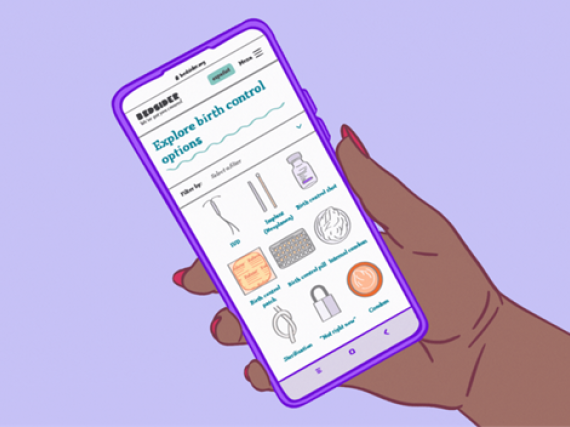When Barriers Hinder: A Provider's Perspective
In order to ensure all women have the power to decide if, when, and under what circumstances to get pregnant, we need policies that improve women’s access to contraception. As a family physician, I enjoy helping my patients find a contraceptive method that works well for them. One of the greatest frustrations, however, comes when a patient has an unplanned pregnancy due to barriers that hinder her ability to start or continue a method I have prescribed.
Monthly calls and visits to the pharmacy to refill and pick up birth control can be significant impediments to some women using birth control in a correct and consistent manner. Women are less likely to experience a missed day when they have access to a full year’s supply of birth control. That is why a policy mandating insurance coverage for a year’s supply of contraception is gaining traction in some states. As of the beginning of 2018, 13 states (including the District of Columbia) have passed legislation that make it easier for women to pick up a 365 day supply of self-administered hormonal contraception such as the pill, patch, or ring.
These methods become 30 times less effective with “typical use” than they are with “perfect (consistent and correct) use.” This means with typical use of the pill/patch/ring 9 out of every 100 women will have an unplanned pregnancy, per year. Whereas with perfect use, less than 1 out of every 100 women will have an unplanned pregnancy, per year. This lower effectiveness comes from missed doses and gaps between monthly refills.
From a medical perspective, there is no reason why a patient should not be allowed to obtain a year supply of contraception at one time. There are important contraindications to contraception that a healthcare provider needs to evaluate with their patient before starting a method and a year’s supply may not be ideal for a patient starting a new method of birth control. However, once a woman is satisfied with her chosen method, she will likely only need to see her provider once a year for a check-up and refill. In the meantime, closer supervision for safe or correct contraception use is not necessary.
Currently, several state legislatures have proposed bills that would allow for extended prescriptions of hormonal contraceptives. States as diverse as New Hampshire and South Carolina, for example, have bipartisan bills that have already passed one branch of the legislature. We will continue to monitor the progress of these bills and hope that New Hampshire and South Carolina join the growing number of states making it easier for women to access the method that works best for them. Check to see whether your state has this policy, and if not, this is the time to start laying the groundwork with policymakers and partners to take action.
Arin Swerlick, MD is a Physician at Children's National
*This piece is of her own opinion and not that of Children's National Hospital



